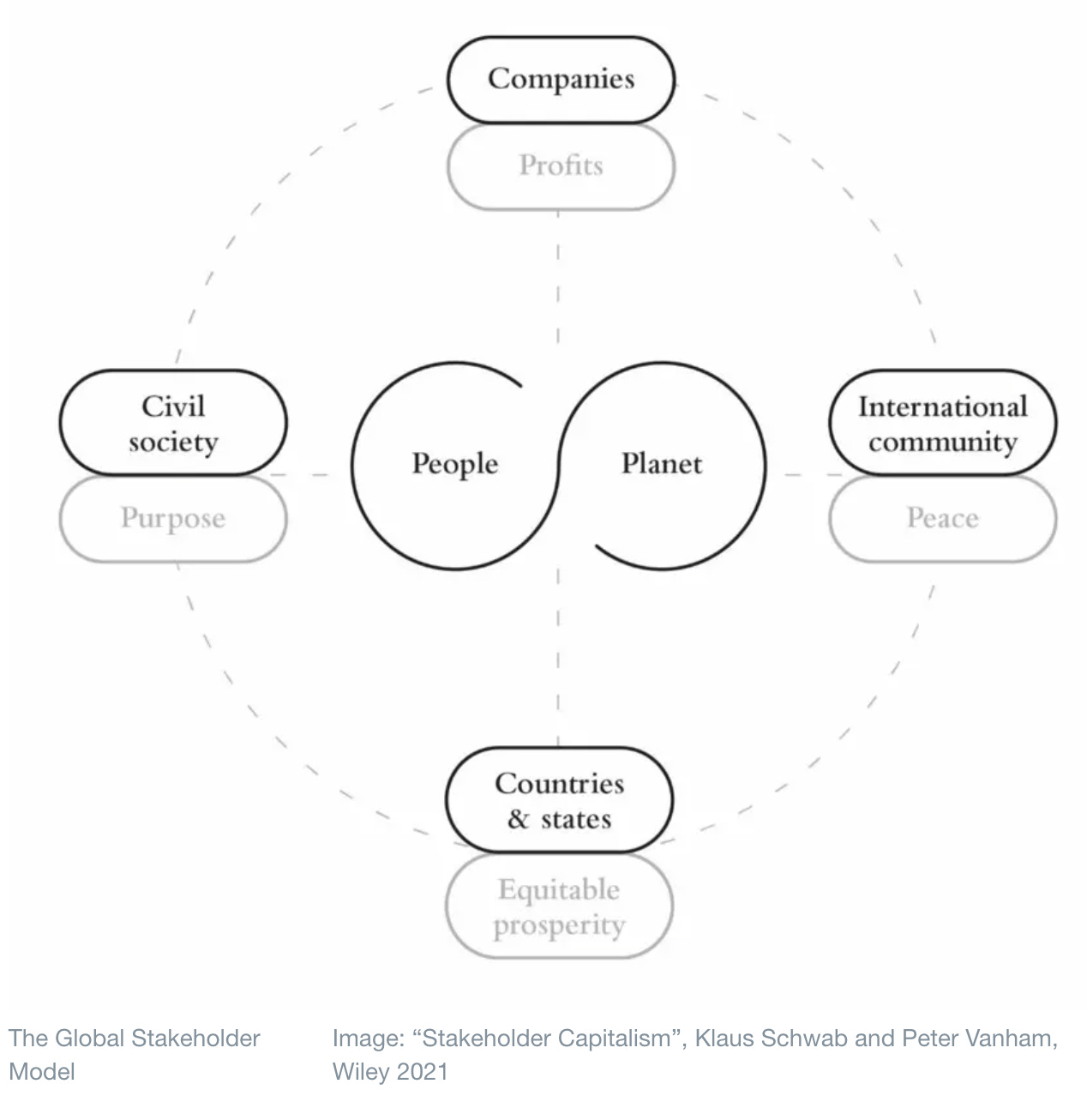G3P: Global Public-Private Partnerships and the United Nations
Meet the new boss (Part 2)
The World Economic Forum currently advocates an updated stakeholder capitalism model. The WEF proposes that under this model, governments should focus on creating the greatest possible prosperity for the greatest number of people. Civil society exists to advance its constituents' interests and give meaning or purpose to its members. Companies aim to generate an economic surplus, measurable in profits in the short run, and long-term value creation in the long run, and the overarching goal for the international community is to preserve peace. The WEF posits that, under this model, when the well-being of people and planet are at the center of business, the four remaining key groups of stakeholders contribute to their betterment, as all of these groups and their goals are interconnected.
Part 1 of this essay can be found here. Parts 1 and 2 comprise one of the 34 chapters (plus introduction, glossary and references) in our upcoming book titled “PsyWar: Enforcing the New World Order,” now completing the final editing stage.
The WEF does not have an electoral mandate, and none of us have any opportunity to influence or even question its judgments. Yet, it is working in partnership with our supposedly democratically elected governments, the United Nations, and various G3P stakeholders to redesign the planet on which we all live.
How has this been justified?



